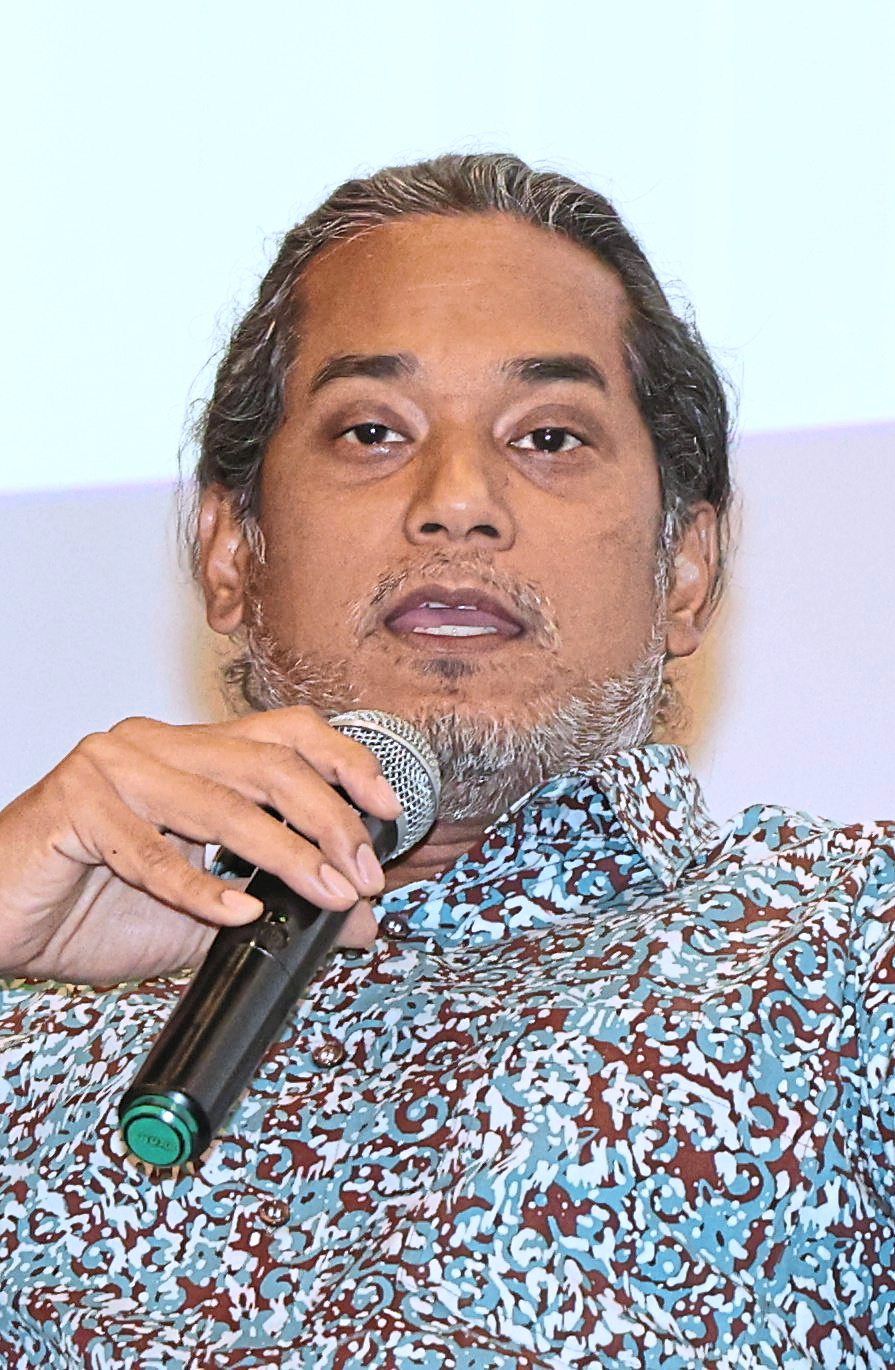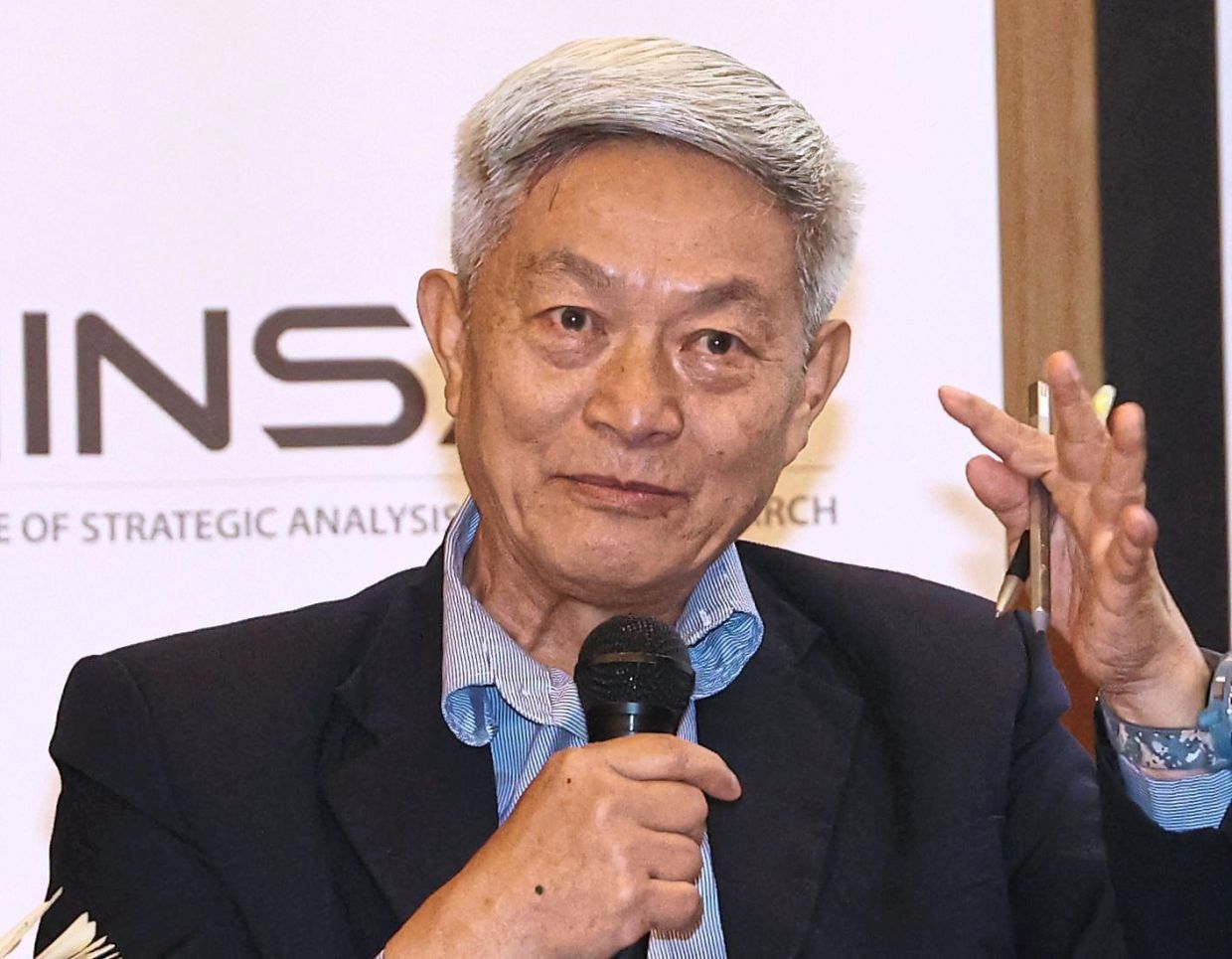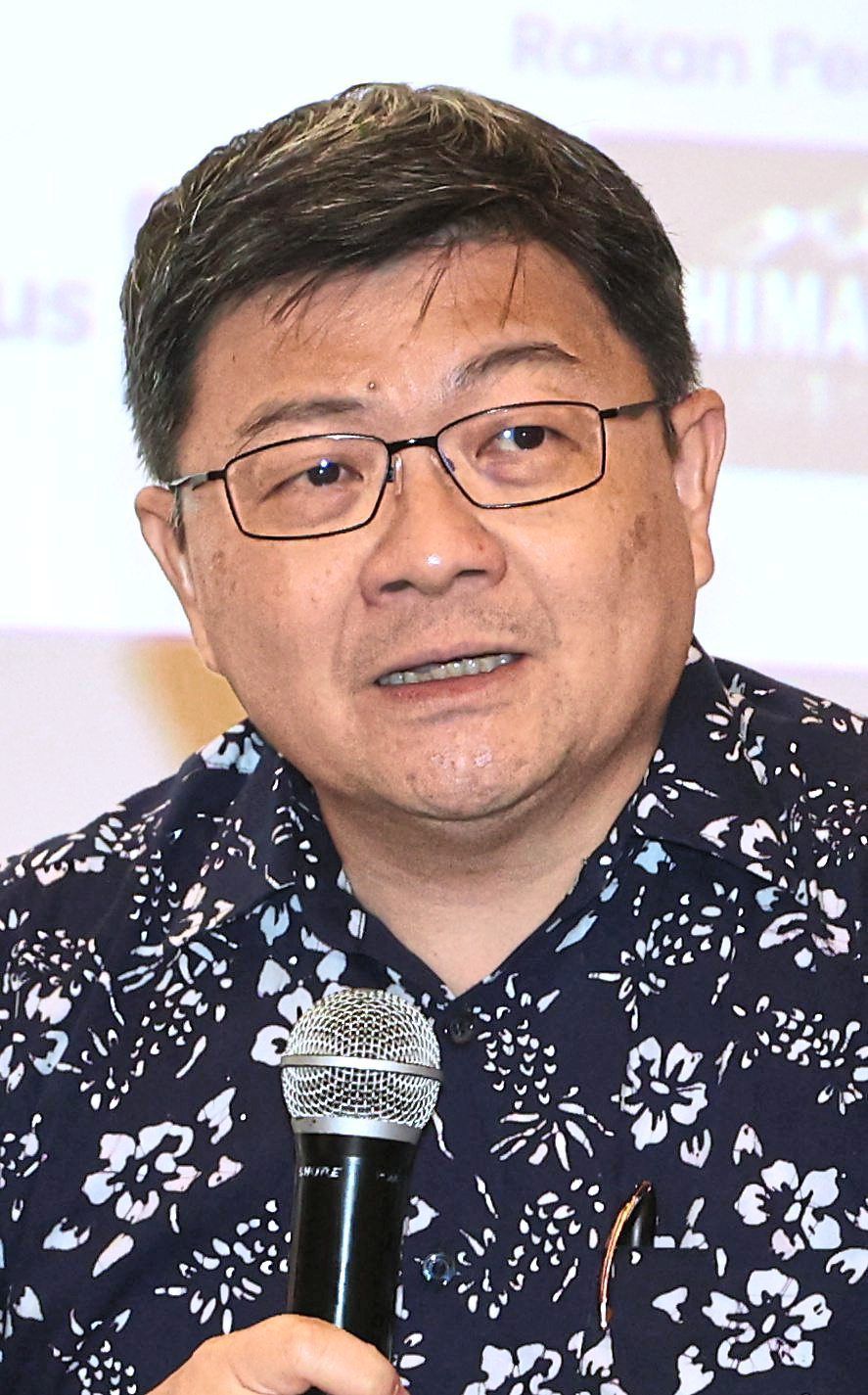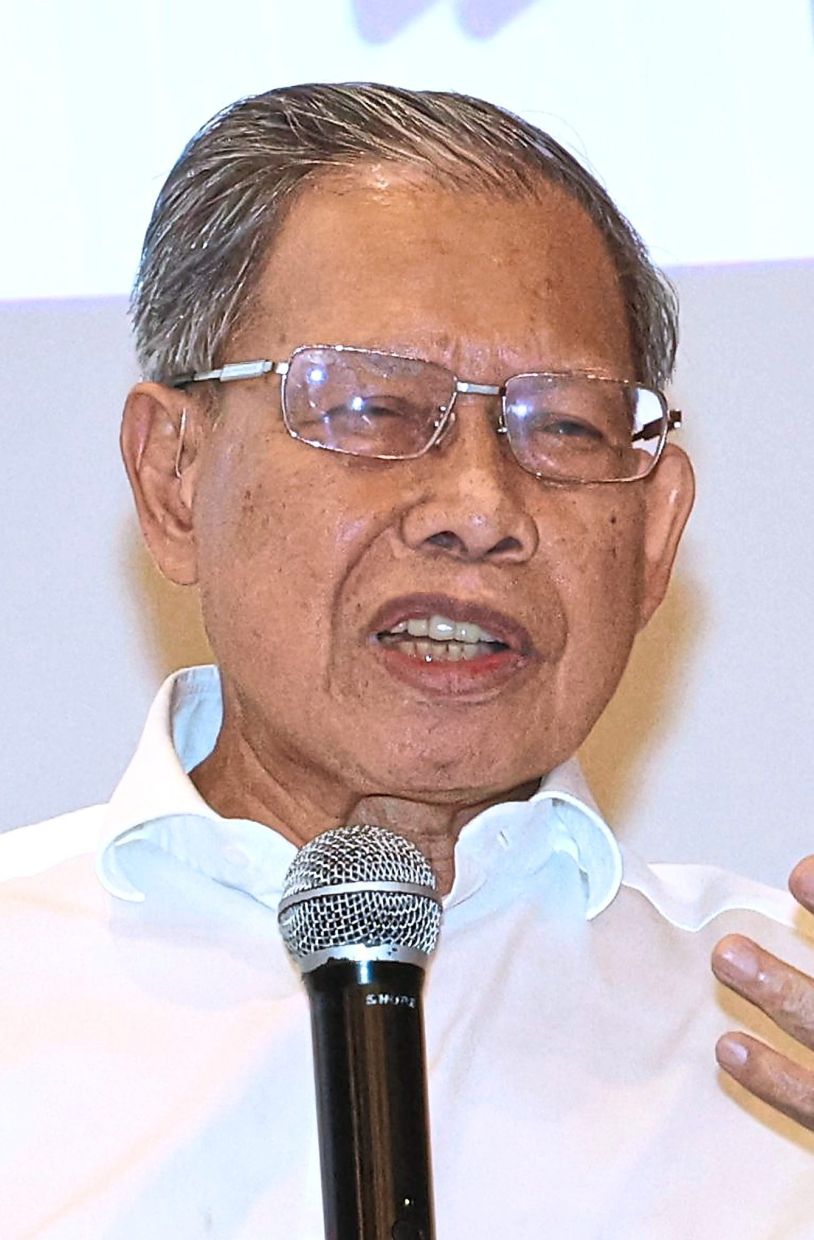Listening hard: Audience members at the recent forum waiting to ask questions as panellists discuss the importance of active neutrality in navigating geopolitical uncertainties while orbiting big powers like the United States and China. — Photos: ART CHEN/The Star
IN a tense geopolitical situation, “middle states” like Malaysia rely on making and staying friends with most nations, and getting a foot in trading blocs without antagonising others.
It is an extremely complex dance with many partners that any government of the day must come to grips with immediately. And some of those partners do not want Malaysia to dance with others of opposing cliques in this dancehall.
While Malaysia is not new to navigating waters filled with major competitive powers, analysts and former Cabinet ministers say further unpredictability from the US-China trade and technology “war” amid other major conflicts means we must handle our relations through active neutrality even more deftly.
Neutrality as a political concept in the post-WWII era is not new. It refers to a country maintaining an impartial position while still seeking pragmatic relations with all powers.
At the recent 2024 Politics and Economics Forum (FEP2024) organised by the Institute of Strategic Analysis and Policy Research (Insap) and Universiti Sains Malaysia’s School of Distance Learning, panellists said active neutrality is one of the best ways to navigate geopolitical uncertainties while orbiting big powers like the United States and China in the dance of nations, while serving Malaysia’s national interests.
Within this context, panellist and former Health minister Khairy Jamaluddin Abu Bakar defines Malaysia’s overarching national interests as “to preserve and promote peace and prosperity for all Malaysians”.
“Anything that destabilises the peace architecture of the country and the region will profoundly impact our national interests and have a disproportionate impact on our prosperity,” he says.
“At the very least, the government must not make any decision that would erode the peace that Malaysians enjoy, and the prosperity that the future holds.”
Khairy says in a world with multiple conflicts such as Ukraine and Gaza, and unprecedented pandemics like Covid-19, Malaysia also has to contend with regional flash points and not be seen leaning too heavily in directions that may antagonise certain powers.
“We also have a highly combustible region in East Asia – Taiwan, the Korean peninsula, the South China Sea. We must ensure that the part of the world where we have some control, South-East Asia, is where we put our effort in,” he says.
This was part of the second panel discussion titled “Navigating the Global Political Economy in a Time of Uncertainties: Perspective from Malaysia” at the FEP2024 on Wednesday.
Themed “The Reality of Political and Economic Challenges in the 21st Century”, the one-day forum was held at the International Youth Centre in Cheras, Kuala Lumpur.
Despite being a small state, Malaysia still has the chance to take advantage of opportunities and benefits from competition spillovers between giants like the United States and China.
“Malaysia or South-East Asia will be affected in one way or another. It’s about opportunities and benefits, but also challenges and implications,” says Universiti Kebangsaan Malaysia’s Institute of Malaysian and International Studies international relations professor Dr Kuik Cheng-Chwee.
“We cannot take for granted the peace and prosperity that we enjoy. Things can be very fragile. There is a thin line.
“The moment Washington changes policy, a lot of things that we enjoy might take a different form, might go in a different direction. It is beyond us.
“Furthermore, as the big powers wrestle, South-East Asia, with Malaysia in the middle, has become a centre of courtship and, ominously, also the wrestling map for those same powers.
“As they compete, they will offer you benefits to collaborate with them. But there is always a price and a risk to pay,” says Kuik.
Being a smaller country, Malaysia is more vulnerable than many others and has to bank on its multitude of allies, and make friends with more, to withstand any impact caused by the big powers tussling with each other, he adds.
“US-China rivalry is getting more unpredictable. Europe is also nervous about the US and China because they think that US commitment is a question mark. China’s actions and intentions are another question mark. US-China future relations is a bigger question mark. It is beyond any prediction. It is better to have more partnerships rather than fewer partners,” says Kuik.
Kuik further notes in an essay for the US Institute of Peace that “middle-sized states like Malaysia will not take sides while seeking to strengthen the existing approach of pursuing active, inclusive, and prudent multilayered, equidistance diplomacy”.
In actively maintaining an impartial and neutral position while seeking productive and pragmatic relations with all powers, Malaysia is embracing “an active and inclusive equidistance” that is manifested not only in the economic and development realms – like China’s Belt and Road Initiative and the US-led Indo-Pacific Economic Frame-work – but also increasingly in the defence and diplomatic domains.
ALSO READ: FEP2024: Not much ado about racial politics
Former minister in the Prime Minister’s Department (Economy) Datuk Seri Mustapa Mohamed, who was also at the forum, says there is much international respect for Malaysia’s stance of remaining neutral over the years.
“We are close to many countries, which enhances our ability to swim in as many ponds as possible to serve our national interests,” say Mustapa, who led Malaysia’s negotiations from the start of the Trans-Pacific Partner-ship Agreement talks, and was also involved in the Regional Comprehensive Economic Partnership discussions.
Joining BRICS is a risk in terms of antagonising powers opposed to the Russia and China-led grouping, he says, but it is within Malaysia’s national interests to “get in the door” early to steer talks our way.
(BRICS, which initially included Brazil, Russia, India, and China, was established in 2009, with South Africa joining in 2010. The bloc now includes Egypt, Ethiopia, Iran, and the United Arab Emirates.)
He adds that moving in this trajectory should further boost Malaysia’s international standing and allow the country to gain knowledge and technology transfers from more nations.
“Malaysia needs to fully exploit this to benefit ourselves and enhance our resilience,” he says.
From a longer-term macro- economic perspective, Jeffrey Cheah Institute on Southeast Asia – Sunway University economics analyst Prof Dr Yeah Kim Leng says building internal economic resilience is also crucial for a country relying on active neutrality.
“This means we should not be overly dependent on external financial flows. We need to build up our surplus to shield us from volatility in the world’s financial markets,” says the Prime Mini-ster’s policy advisory council member.
US-China competition is also resulting in America’s Western allies such as those in the Quad (the Quadrilateral Security Dialogue involving Australia, India, Japan, and the United States) and Aukus (Australia-United Kingdom-United States) decoupling their supply chains from China’s networks.
To take advantage of this scenario, Prime Minister Datuk Seri Anwar Ibrahim has been reaching out to multiple partners and proposing Malaysia as a non-aligned location for more investments.
“Anwar is quite on point when it comes to this,” says Khairy.
“We want to make sure it is not a zero-sum game in Asean, but of course we also want to make sure a lot more of the investment comes to Malaysia rather than our neighbours,” he adds.
Malaysia’s competitiveness in attracting investments will come from its well-built infrastructure and connectivity, a network of free trade agreements, and pro-business policies.
As US-China competition ramps up and the call to take sides gets louder, more powers may push for middle states to take stances that do not serve our interests.
But Kuik says these calls are too zero-sum in nature.
“We have made the decision not to choose a side. It is pragmatic and for survival. We are pursuing non-alignment as a goal, with multi-alignment as a means. It means we are neutral, not taking sides. We will not be entrapped by any side.”









